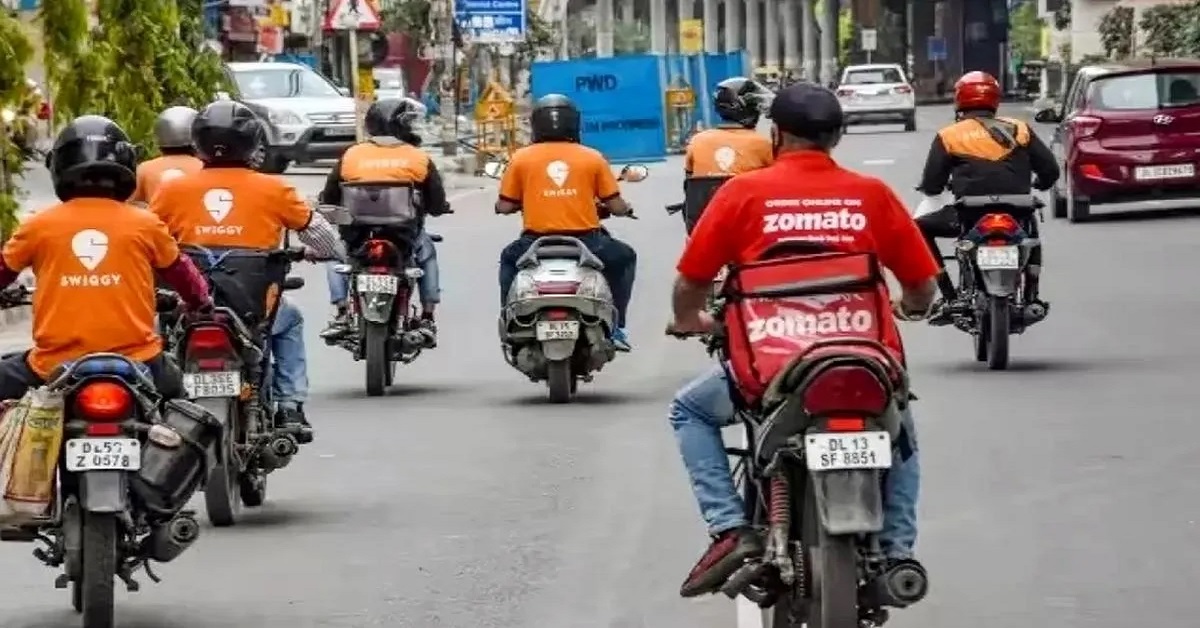Rajasthan became the first state to enact a law for the welfare of gig workers after its legislative assembly passed the Rajasthan Platform Based Gig Workers (Registration and Welfare) Act, 2023. Gig Workers are those who work outside of a traditional employee-employer relationship. Given that they are not directly employed, firms have been treating them as individual contractors while experts have raised concerns over the treatment of these workers like employers rather than as traditional employers. For example, what the common people perceive as a ‘food delivery company’s workforce’ is treated as Food Delivery company’s Delivery Partner by the company.
In this context, it is important to understand the legislation that seeks to provide social security to platform-based gig workers.
To whom does this act apply?
The act applies to aggregators – the online intermediary for buyer of goods/user of service and the seller/service provided; any service or work involving gig workers or a platform. For example, a Food Delivery company or a ride hailing company can be considered as an aggregator.
Who is a Gig Worker?
The act defines Gig Worker as a person who performs work or participates in a work arrangement and earns from such activities outside of traditional employee-employer relationship and who works on a contract that results in a given rate of payment, based on terms and conditions laid down in such contract and includes piece-rate work. Piece rate work means that the payment is on the basis on the number of units of work performed rather than the time spent on work. For example, food delivery workers earn money based on number of food orders they deliver rather than the number of hours they spend on the job.
What does the act do?
Mandates registration of workers and aggregators
The Act mandates that the aggregator should provide its database of all platform-based gig workers on-boarded or registered with it, within 60 days of enforcement of the Act. Any registration or on-boarding with the aggregator should be registered with the government automatically. The act also states that every gig worker should get his/her own unique ID. Apart from registration of workers, the act also requires the aggregator to be registered with the government and mandates that the government should publish the list of registered aggregators on a web portal. This makes sure that all eligible beneficiaries are roped into the state’s welfare fold.
Directs to Establish a Fund
The act states that the government shall establish the Platform Based Gig Workers Social Security and Welfare Fund for the benefit of registered platform-based gig workers. The contribution to this fund, apart from a welfare fee charged to the aggregators, would also come from the state government grants and other sources. The Welfare Fee charged to the aggregators would be at a rate of the value of each transaction related to the platform-based gig worker, and will be notified by the government.
Recognises rights of gig workers
The act states that platform-based gig workers have a right to be registered with the government irrespective of the duration of their work and be provided a Unique ID, have access to general and specific social security schemes based on contributions made, have an opportunity at grievance redressal, participate in decisions taken by the board, through representation.
Constitutes a welfare Board.
The act constitutes a Rajasthan Platform Based Gig Workers Welfare Board, consisting of the Minister of Labour of the State, respective secretaries of Departments of Labour, Information Technology, Social Justice, Transport, Finance; two representatives of the gig workers and two representatives of the aggregators, owners and manufacturers of goods and services- all nominated by the State Government; two representatives- one from Civil Society and one from a field which the government thinks should be represented in the Board. There is also requirement that 1/3rd of the Board should constitute women. This board is entrusted with ensuring the various compliances under the Act. The Board is entrusted with registration of both workers and aggregators, ensure the technical aspects of the payment mechanisms are functioning and integrated; monitoring schemes of social security for the registered platform-based gig workers; ensuring grievance redressal etc.
Others
The act states that a 12% interest will be levied on the late paying of the welfare fee by the aggregator and any aggregator who contravenes the provisions of the act, or the rules made under the act could be levied a fine of up to Rs. 5 Lakh for the first contravention and a fine of up to Rs. 50 Lakh for the second contravention. The act also states that all payments to the workers and the payments generated on platforms shall be mapped to a Central Transaction Information and Management System, (CTIMS).
This tracking system will be useful in making sure there is transparency not only with respect to the payments made for the workers but also with respect to the payments generated on platforms since the Board can monitor them.
What does this mean for Gig Workers?
This act primarily puts the might of the state behind Gig Workers in their fight to get more rights, in an increasingly neoliberal economic environment, where the nature of their employment is an impediment to their right to social security. Since there is no mandatory responsibility on the Gig Worker to register, there is no disproportionate responsibility on the worker.
Welcome as it is, this is only a first step since steps are yet to be taken to increase workers’ collective bargaining power with respect to their commission etc. Although these issues might not be solved by legislation, concerted state efforts could facilitate such endeavours.
(The author is a legal researcher with the organisation)
Related:
What Karnataka thinks today, will India think tomorrow?
Zomato Workers win Back Benefits After 4-Day Strike in Thiruvananthapuram
Report Highlights Poor Working Conditions for Gig Workers; Uber, Ola, Amazon Score Zero

